Table of Contents
- Introduction
- Overview of Digital Transformation
- The Role of Technology in Addressing Challenges in Hospitality
- Key Technologies Shaping the Future of Hospitality
- Transforming Guest Experiences with AI, IoT, Blockchain, and AR/VR
- Technology Is Streamlining Operations and Reducing Costs
- The Legal and Regulatory Challenges Faced by the Industry
- Common Obstacles in Adopting New Technology
- The Road Ahead: Future Trends
- Conclusion
- About Goodman Lantern
Introduction
Digital technology in the hospitality industry is reshaping guest experiences and operational efficiencies. This whitepaper delves into the role of digital technologies within the hospitality sector, where innovations enhance customer satisfaction and catalyse industry-wide changes.
Technology stands at the vanguard of this evolution. Some technological advancements include integrating intelligent systems in hotel management and adopting artificial intelligence (AI) for personalised guest services. As we navigate digital transformation in the hospitality industry, it's important to understand how these technological advancements redefine hospitality norms. This exploration sheds light on current trends and offers a glimpse into the industry's future, marked by heightened efficiency, customer-centric services, and groundbreaking solutions.
This whitepaper will discuss how embracing digital technologies is not just a transient trend but a strategic imperative to remain competitive and relevant in the swiftly evolving hospitality landscape.
Overview of Digital Transformation

Digital transformation in the hospitality industry signifies a sweeping change in how hotels and other establishments harness technology to enhance the customer experience and streamline operations. It encompasses an array of digital tools, from mobile apps for guest services to data analytics for personalised marketing.

This transformation isn't just about adopting new technologies; it's about rethinking business models to optimise guest satisfaction and operational efficiency. The ensuing sections provide a deeper insight into the historical context, market trends, challenges, and key drivers of this digital shift, underscoring their profound impact on the hospitality industry.

Historical Context of the Shift Towards Digital Technologies
The digital revolution in hospitality harks back to the advent of online booking systems and the internet becoming a key player in travel planning. Initiated in the late 20th century, this shift fundamentally altered guest interaction and service delivery. Wireless technology and smartphone advancements have further accelerated this trend, enabling innovations like mobile check-ins and digital concierge services. This historical transition underscores a journey from conventional, manual operations to technology-driven approaches to enhancing guest experiences.

Market Trends and Challenges Faced by the Hospitality Sector
Today's hospitality sector confronts evolving market trends, including heightened guest expectations for digital convenience and personalised experiences. The ascent of online travel agencies and review platforms has intensified competition, customer expectations, and the need for superior transparency, challenging hotels to preserve their reputation and customer loyalty. Moreover, incorporating technology while ensuring data privacy and security presents a notable challenge. Adapting to these trends and overcoming these hurdles is crucial for businesses to stay pertinent and competitive in the fast-paced, technology-centric hospitality landscape.

Key Drivers of Digital Transformation in Hospitality
The key drivers of digital transformation in the hospitality industry encompass the need for enhanced customer experience, operational efficiency, and a competitive edge. Harnessing technology such as AI for personalised guest services, the Internet of Things (IoT) for intelligent room control, and big data for market insights is pivotal. Furthermore, the post-pandemic landscape's focus on contactless services and hygiene has expedited digital adoption. These drivers underscore the industry's shift towards a more integrated, technology-driven approach to meet modern guest expectations and optimise hotel management.
The Role of Technology in Addressing
Challenges Under Hospitality

Technology is an indispensable instrument in tackling the hospitality industry's myriad challenges. From streamlining operations to augmenting guest experiences, digital solutions offer innovative approaches to long-standing issues. This section explores how technology acts as a catalyst for change, specifically addressing industry challenges and delineating key digital transformation initiatives in hospitality. By integrating advanced technologies such as AI, IoT, and data analytics, the hospitality sector addresses operational and customer service dilemmas. It establishes new benchmarks for efficiency, personalisation, and innovation in an increasingly competitive market.

Introduction to Technology as a Catalyst for Change
Technology in hospitality management has emerged as a potent catalyst for change, revolutionising service delivery and management. It transcends traditional practices, ushering in efficiencies and innovations previously inconceivable. From AI-powered chatbots providing round-the-clock customer support to IoT-enabled smart rooms enhancing guest comfort, technology is redefining the hospitality experience. This shift towards digital integration signifies a substantial transformation in the industry, underscoring technology's role in driving progress and resolving age-old challenges in new and exciting ways.
How Technology Addresses Specific Challenges Faced by the Industry
The technology addresses specific challenges in the hospitality industry by augmenting customer service, optimising operations, and delivering data-driven insights. For instance, customer relationship management (CRM) systems facilitate personalised guest experiences, while predictive analytics assists in resource management and trend prediction. Automated check-in kiosks and mobile applications reduce wait times and enhance guest convenience. Moreover, technology is critical in upholding safety standards through digital monitoring and contactless interactions, especially in the post-pandemic era. These technological solutions exemplify the industry's move towards more efficient, guest-centric, and resilient operations.

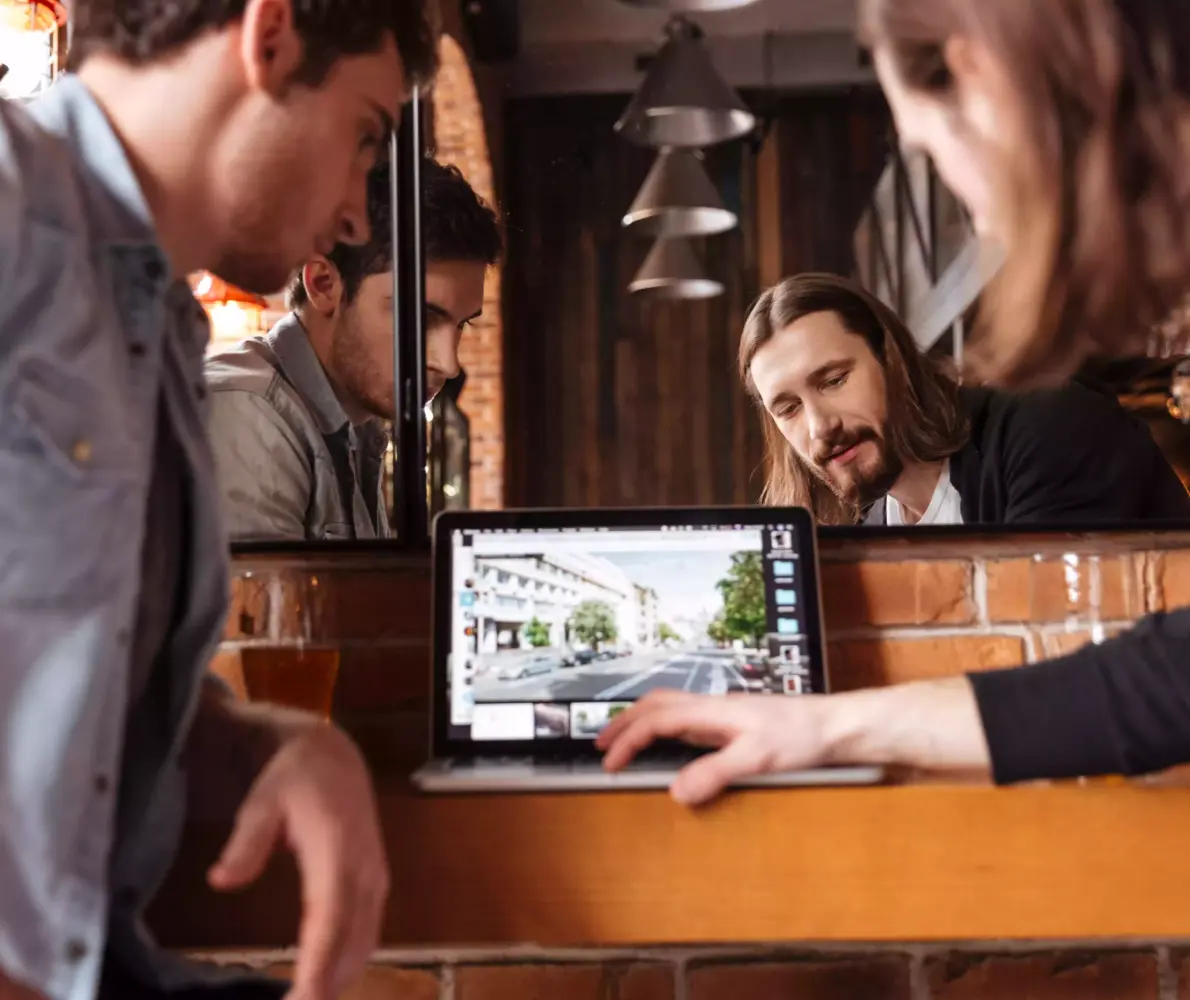
Digital Transformation Initiatives in Hospitality
Digital transformation initiatives in hospitality encompass an extensive range of technologies to modernise and enhance every facet of hotel operations and guest experiences. These initiatives include implementing cloud computing for superior data management, using AI for personalised guest interactions, and adopting IoT for intelligent room features. Mobile technology for seamless check-in/check-out processes and virtual reality for immersive room previews are also gaining momentum. Such initiatives streamline operations and significantly elevate the guest experience, heralding a new era in hospitality management.
Key Technologies Shaping the Future Of
Hospitality

The future of hospitality is being moulded by key technological advancements that promise to revolutionise service delivery and experiences. These technologies include IoT, AI, machine learning (ML), big data analytics, augmented reality (AR), and virtual reality (VR). Each contributes distinctly to enhancing operational efficiency and elevating the customer experience. This section will explore how these technologies are not merely trends but fundamental tools setting new standards in the hospitality industry, paving the way for a more efficient, personalised, and immersive future.

Internet of Things (IoT) Applications
IoT applications in hospitality are forging smarter, more interconnected environments that bolster guest experiences and operational efficiency. IoT-enabled devices such as intelligent thermostats, lighting systems, and digital key cards permit personalised room settings, energy conservation, and streamlined access control. Furthermore, IoT technology in maintenance can foresee and address issues before they impact guests. The interconnectedness afforded by IoT offers convenience and comfort to guests but also equips hotel managers with real-time data to refine their service and resource management.

Artificial Intelligence and Machine Learning
AI and ML in hospitality are transforming guest services and operational processes. AI-driven chatbots and virtual assistants provide personalised customer service, efficiently managing reservations and enquiries. ML algorithms scrutinise guest data to customise recommendations and services, enhancing personalisation. AI is also pivotal in refining pricing strategies and inventory management. These technologies enhance the guest experience through customisation and efficiency and offer invaluable insights for hotel operators, supporting strategic decision-making and long-term planning.

Big Data Analytics for Operational Efficiency and Customer Insights
Big data analytics is revolutionising the hospitality industry by enabling more informed decision-making and tailored guest experiences. By scrutinising vast volumes of data, hotels can obtain insights into customer preferences, spending patterns, and market trends. This information is indispensable for tailoring services, boosting guest satisfaction, and honing marketing strategies. Big data also enhances operational efficiency by forecasting demand, managing inventory, and optimising staffing. Harnessing and interpreting this data is crucial to remain competitive in a rapidly evolving industry.

Augmented Reality (AR) and Virtual Reality (VR) Applications
AR and VR applications in hospitality are establishing new benchmarks for customer engagement and experience. AR amplifies the real-world environment with digital overlays, offering interactive hotel maps or translating menu items in real time. VR presents virtual tours of properties and destinations, enabling guests to experience a location before booking. These technologies proffer an immersive and interactive experience for guests but also serve as potent marketing tools, presenting a preview of the unique experiences available in the hospitality industry.
Transforming Guest Experiences with
AI, IoT, Blockchain, and AR/VR

The hospitality industry is transforming significantly, driven by innovative technologies like AI, IoT, Blockchain, and AR/VR. These technologies are not just enhancing guest experiences but are also redefining operational models and marketing strategies. AI and IoT are revolutionising service personalisation and efficiency, while Blockchain ensures secure and transparent transactions. AR and VR are creating immersive and interactive customer experiences. This section explores how these technologies are currently applied in hospitality, their future impact on the industry, enhancements in customer experience, and their evolving role in marketing.

How These Technologies Are Being Applied in Hospitality
In hospitality, AI is used for personalised guest services, IoT for connected room experiences, Blockchain for secure payment processes, and AR/VR for immersive exploration. AI powers chatbots for 24/7 assistance and personalises services based on guest preferences. IoT enables smart room control for customised environments. Blockchain offers secure, transparent booking and payment systems. AR/VR provides virtual tours and interactive experiences, enhancing the pre-booking phase. These applications showcase how technology is integral to modernising hospitality services and improving guest satisfaction.
Future Impact on the Industry
The future impact of AI, IoT, Blockchain, and AR/VR on the hospitality industry is profound. AI and IoT will continue to streamline operations and personalise guest experiences. Blockchain is expected to revolutionise payment and loyalty programs, offering enhanced security and efficiency. AR/VR will become more prevalent in marketing and customer engagement, offering virtual experiences that influence booking decisions. These technologies will elevate guest experiences and drive operational excellence, paving the way for a more technologically advanced and customer-centric hospitality industry.
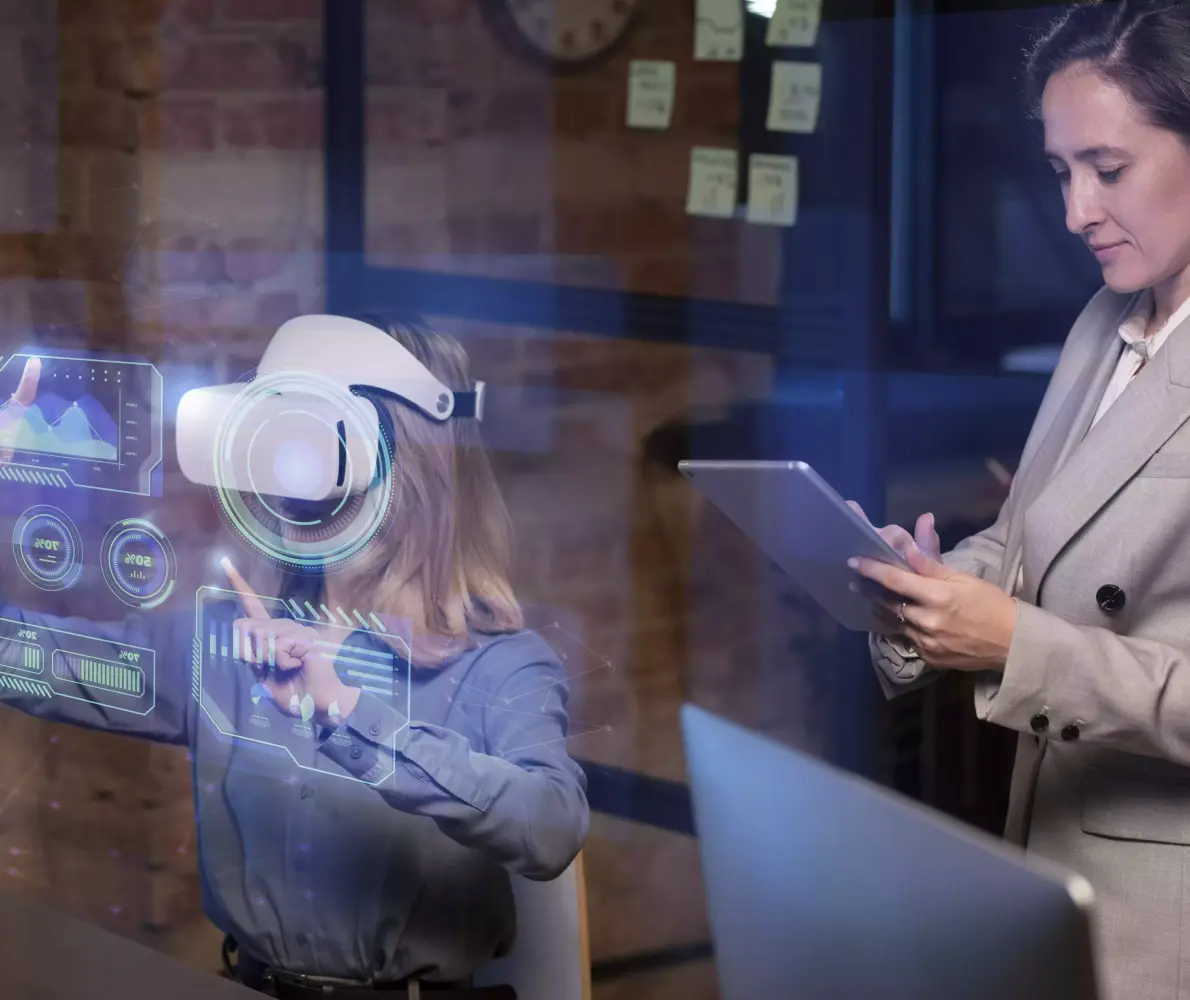

Customer Experience Enhancement
AI, IoT, Blockchain, and AR/VR significantly enhance customer experiences in hospitality. AI personalises interactions and services, making guests feel valued and understood. IoT creates a seamless and comfortable environment tailored to individual preferences. Blockchain ensures a secure and hassle-free transaction process. AR/VR offers engaging and immersive experiences, from exploring destinations virtually to interactive in-room features. These technologies collectively contribute to a more convenient, enjoyable, and memorable stay, setting new standards for guest satisfaction and loyalty.
Impact in Marketing
In marketing, AI, IoT, Blockchain, and AR/VR are redefining strategies and customer engagement. AI enables targeted marketing based on customer data, while IoT provides insights into guest preferences. Blockchain can facilitate loyalty programs with secure and transparent reward systems. AR/VR offers innovative ways to showcase properties and destinations, creating engaging and interactive marketing content. These technologies help craft personalised and compelling narratives, attract a broader audience, and enhance brand visibility in the competitive hospitality market.

Technology Is Streamlining Operations
and Reducing Costs

Technology plays a pivotal role in streamlining operations and reducing costs in the hospitality industry. Innovative digital solutions like automated reservation systems, advanced inventory management, contactless services, and energy-efficient practices transform hotels' operations. Automation across various domains is not only enhancing efficiency but also significantly cutting down operational expenses. This section explores the different technological advancements contributing to operational streamlining and cost reduction, highlighting the advantages they bring to the hospitality sector in terms of operational effectiveness and sustainability.
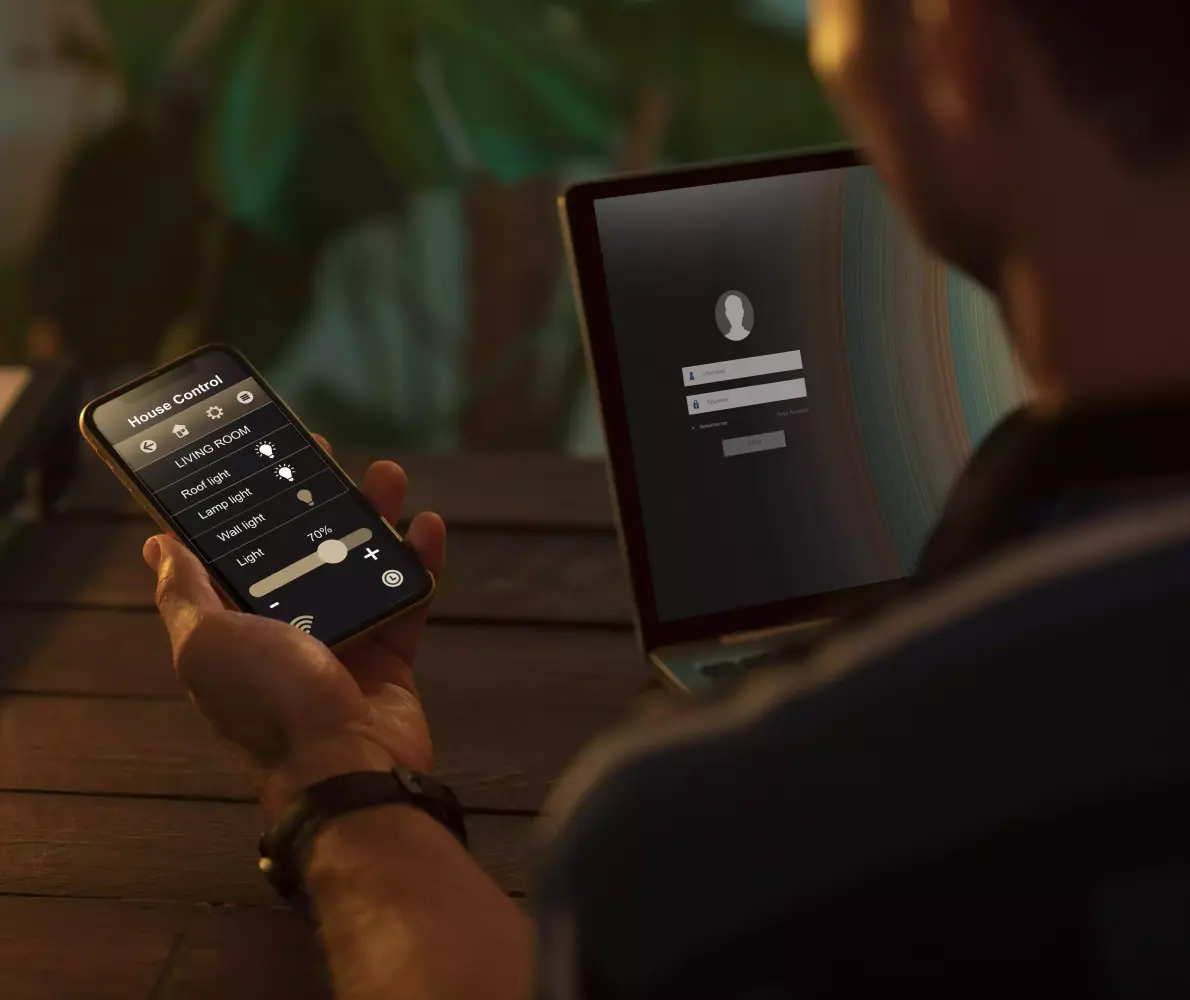
Automated Reservation Systems
Automated reservation systems have revolutionised booking processes in hospitality. These systems, powered by advanced software, enable efficient handling of reservations, reducing manual errors and saving time. They provide real-time room availability updates, streamline booking procedures, and offer guests a user-friendly interface for hassle-free reservations. This automation leads to improved customer satisfaction and operational efficiency. Additionally, these systems gather valuable guest data, aiding in personalised marketing and service optimisation, showcasing a significant cost-effective solution for managing reservations.
Inventory and Resource Management
Technology in inventory and resource management has brought about significant efficiency and cost savings in hospitality. Modern management systems use data analytics to predict demand, optimise stock levels, and prevent overstocking or shortages. These systems track inventory in real-time, ensuring efficient resource utilisation and reducing waste. The integration of AI and IoT further automates ordering processes and monitors resource usage, leading to more informed decision-making. This technological advancement ensures operational smoothness and contributes to considerable cost reduction in inventory management.


Contactless Check-in and Check-out
Contactless check-in and check-out technologies have emerged as a cost-effective solution for improving guest experiences while reducing operational costs. These systems, facilitated by mobile apps or kiosks, allow guests to bypass traditional front-desk procedures, offering convenience and reducing wait times. This automation reduces the need for extensive front-desk staffing, lowers operational expenses, and enhances customer satisfaction. In the post-pandemic era, the demand for such contactless interactions has grown, emphasising their importance in providing a safe and efficient guest experience.
Energy Efficiency
Energy efficiency, driven by technology, is crucial in reducing operational costs in hospitality. Smart systems like IoT-based thermostats and lighting control help optimise energy use in guest rooms and common areas. These systems adjust settings based on occupancy and preference, reducing unnecessary energy consumption. Additionally, implementing renewable energy sources like solar panels contributes to long-term cost savings and sustainability. These technological interventions reduce operational costs and align with growing environmental concerns, enhancing the hotel's market appeal.
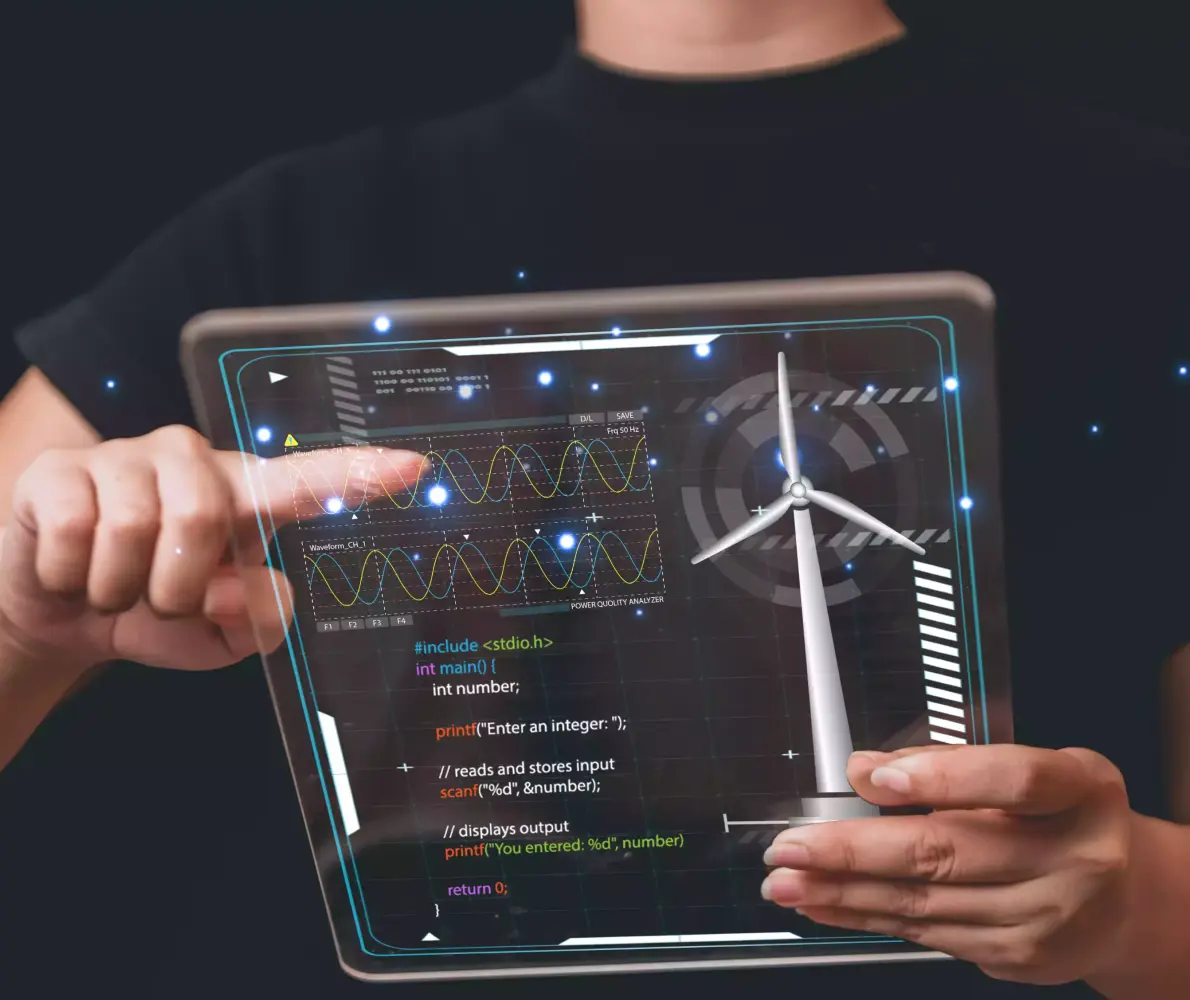

Automation
Automation in hospitality extends beyond guest services to encompass various back-end operations. Robotic process automation (RPA) in administrative tasks reduces manual labour and speeds up processes like billing and reporting. Automated cleaning and maintenance robots improve efficiency and consistency, while kitchen automation optimises food preparation and inventory management. These automated solutions reduce labour costs, minimise errors, and enhance service quality. Adopting automation technologies signifies a step towards more efficient, cost-effective, and future-ready operational models in the hospitality industry.
The Legal and Regulatory Challenges Faced by
the Industry

The hospitality industry navigates a complex web of legal and regulatory challenges, significantly influenced by the integration of new technologies. With advancements in digital services come responsibilities regarding data privacy, cybersecurity, and compliance with various industry-specific regulations. This section examines the key laws and regulations impacting the hospitality sector and the compliance challenges businesses face, including potential legal consequences. Understanding these legal frameworks is essential for industry players to mitigate risks, ensure ethical practices, and maintain customer trust, all while leveraging technological innovations for growth and efficiency.

Relevant Laws and Regulations Impacting the Hospitality Sector
Various laws and regulations govern the hospitality sector, including data protection, labour, health and safety, and consumer rights. Regulations like the General Data Protection Regulation (GDPR) in the EU and similar laws globally mandate strict handling of customer data. Labour laws govern employee rights and working conditions, while health and safety regulations ensure guest and staff welfare. Compliance with these laws is critical to avoid legal repercussions and uphold industry standards, emphasising the need for constant vigilance and adaptation.

Compliance Challenges and Potential Legal Consequences
The primary barriers to technology adoption in hospitality include financial limitations, scepticism about technology's effectiveness, and a lack of digital literacy among staff. Significant investment is often required to modernise infrastructure, which can be a deterrent for smaller establishments. Additionally, a mindset resistant to change can slow down the adoption process, as employees accustomed to traditional methods may view new technologies with apprehension. Further, the fast pace of technological advancements can overwhelm businesses that lack the expertise to evaluate and implement the most appropriate solutions.
Common Obstacles in
Adopting New Technology

Adopting new technology in the hospitality industry often comes with unique challenges. While the benefits of digital transformation are clear, several barriers can hinder the smooth integration of new technologies. These include budget constraints, resistance from staff, lack of technological expertise, and concerns about customer acceptance. This section discusses the common barriers to technology adoption in the industry and strategies for overcoming resistance to foster a tech-friendly culture. Addressing these obstacles is crucial for businesses to leverage technology effectively, ensuring they remain competitive and responsive to evolving market demands and customer expectations.

Barriers to Technology Adoption in the Industry
The primary barriers to technology adoption in hospitality include financial limitations, scepticism about technology's effectiveness, and a lack of digital literacy among staff. Significant investment is often required to modernise infrastructure, which can be a deterrent for smaller establishments. Additionally, a mindset resistant to change can slow the adoption process, as employees accustomed to traditional methods may view new technologies with apprehension. Further, the fast pace of technological advancements can overwhelm businesses that lack the expertise to evaluate and implement the most appropriate solutions.

Overcoming Resistance and Fostering a Tech-Friendly Culture
Overcoming resistance to new technology in the hospitality industry involves training, leadership, and clear communication about the benefits of digital transformation. Training programs can enhance digital literacy and demonstrate the practical advantages of new tools. Leadership plays a crucial role in driving change, with management needing to champion technological advancements and foster an environment that values innovation. Clear communication about how technology improves operations and enhances guest experiences can help in building a tech-friendly culture, encouraging staff to embrace and leverage new tools effectively.
The Road Ahead: Future Trends

As we look towards the future, the hospitality industry stands at the cusp of a new era shaped by digital transformation. This journey will be characterised by continuous innovation and adaptation, driven by emerging technologies and changing consumer expectations. The road ahead promises to be dynamic, with disruptive technologies reshaping the hospitality landscape. This section aims to predict the future trajectory of digital transformation in the industry and discuss potential disruptive technologies and trends, providing a glimpse into what tomorrow's hospitality sector might look like.
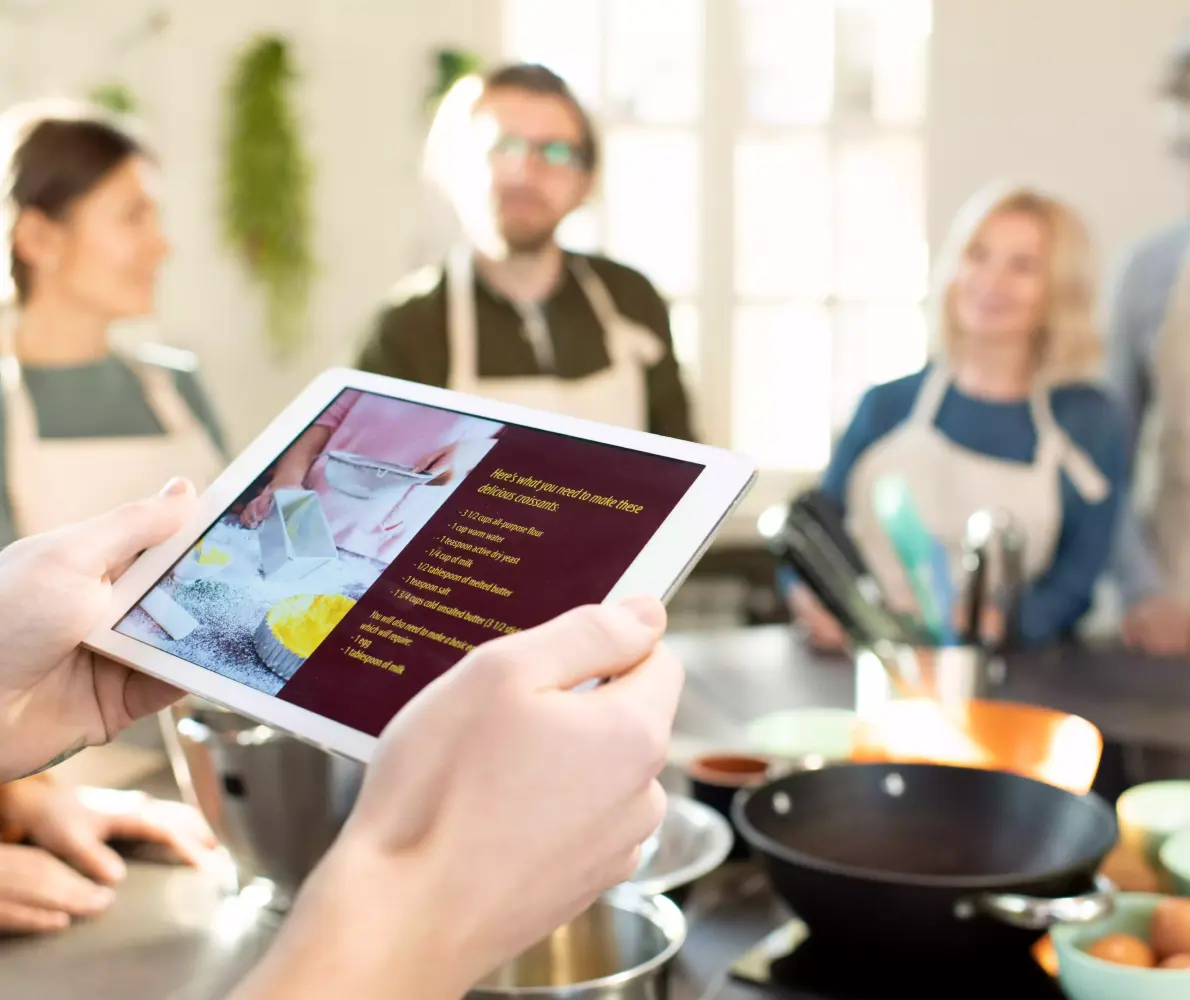
Predict the Future of Digital Transformation in Hospitality
The future of digital transformation in hospitality will likely focus on hyper-personalisation, sustainability, and seamless guest experiences. AI and IoT will become more sophisticated, enabling even more customised services based on guest preferences and behaviours. Sustainability will be a key driver, with technology aiding eco-friendly practices and sustainable operations. Additionally, the seamless integration of digital touchpoints throughout the guest journey will enhance convenience and satisfaction. These trends indicate a future where technology is seamlessly woven into the fabric of hospitality.
Discuss Potential Disruptive Technologies and Trends
Potential disruptive technologies and trends in hospitality include the widespread adoption of blockchain for secure and transparent transactions, the emergence of 5G for enhanced connectivity, and the use of biometrics for personalised and secure guest identification. Additionally, the integration of robotics for operational tasks and the development of smart buildings for energy efficiency are on the horizon. These technologies are expected to fundamentally change how services are delivered and experienced, offering unprecedented levels of efficiency, security, and personalisation in the hospitality industry.

Conclusion

As this exploration into the technological evolution of the hospitality industry concludes, it is evident that digital transformation in the hospitality industry is not a transient trend but a fundamental shift in operational and customer engagement approaches. Integrating technologies such as AI, IoT, Blockchain, and AR/VR has begun redefining guest experiences, streamlining operations, and opening up new avenues for innovation and efficiency. However, this journey is accompanied by its own set of challenges, including legal and regulatory compliance, overcoming resistance to change, and addressing the financial implications of adopting new technologies.

Looking forward, the hospitality industry must continue to adapt and evolve, embracing these technological advancements while being conscious of their potential impacts. By doing so, it can meet the changing expectations of modern consumers and set new benchmarks in customer service, operational efficiency, and sustainability. The road ahead is thrilling and challenging, promising a future where technology and hospitality merge to create unparalleled experiences and value for guests and businesses alike.
About Goodman Lantern

Goodman Lantern is a leading content marketing firm renowned for its expertise in crafting compelling narratives and innovative digital strategies. Our dedicated team combines creativity with data-driven insights to deliver impactful content solutions, helping businesses enhance their online presence and connect with their audience effectively.
Our Clients Love Working With Us Because We Believe in Collaboration
At Goodman Lantern we’re all about building long-term, successful relationships with our clients. We take the time to get to know their business AND the people behind the brand. In true collaborative spirit, we do everything we can to tell your story and help your business grow.
“Goodman Lantern has an unparalleled level of skill and talent, coupled with a keen understanding of implementation.”
“Whenever we've provided feedback or suggestions they have always been receptive and open to making changes.”
“In marketing, content generation is one of the biggest challenges. I’ve been using a large freelancing network, and I did have trouble finding the right talent to produce content for us. Then I got to know Goodman Lantern. We started to do business together, and it seemed Raj understood my requirements very well. He delivered quality content that met my expectations.”
Hundreds of Businesses














